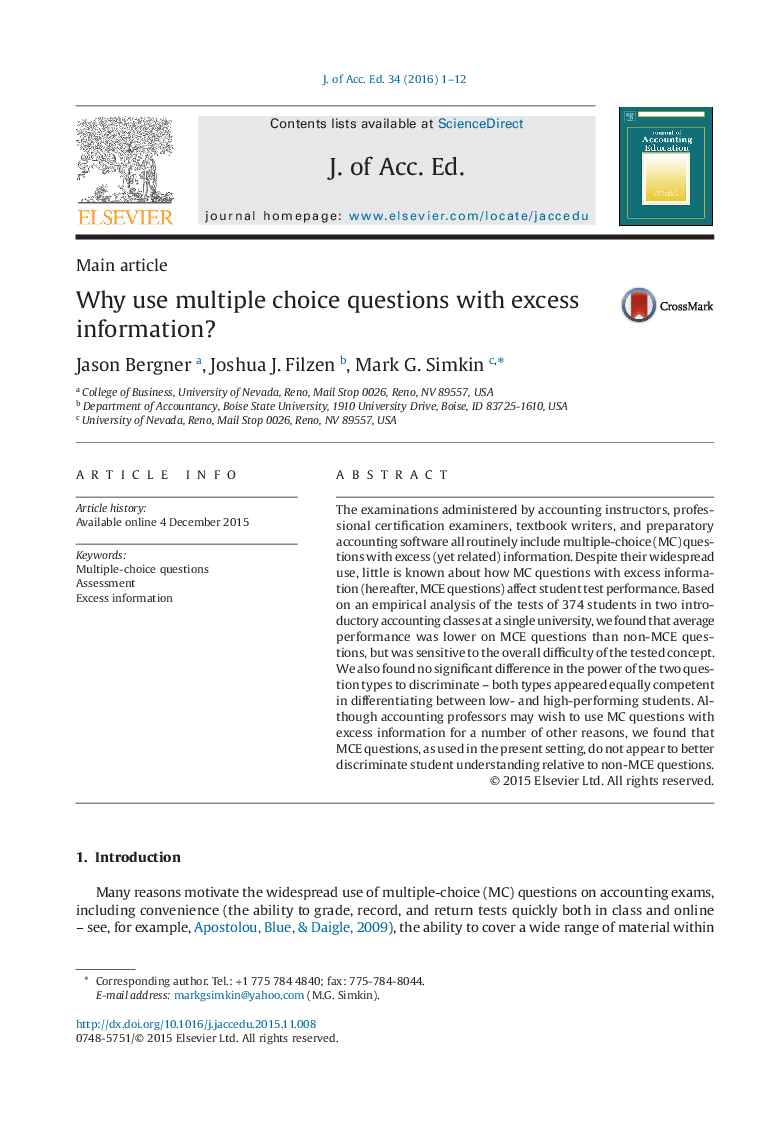| Article ID | Journal | Published Year | Pages | File Type |
|---|---|---|---|---|
| 359353 | Journal of Accounting Education | 2016 | 12 Pages |
•We know little about MCEs in accounting settings.•Tests of 374 students show that MCEs are harder than MCs.•Excess information has little effect on already difficult MC questions.•MCEs are no better than simple MC tests in discriminating among student abilities.
The examinations administered by accounting instructors, professional certification examiners, textbook writers, and preparatory accounting software all routinely include multiple-choice (MC) questions with excess (yet related) information. Despite their widespread use, little is known about how MC questions with excess information (hereafter, MCE questions) affect student test performance. Based on an empirical analysis of the tests of 374 students in two introductory accounting classes at a single university, we found that average performance was lower on MCE questions than non-MCE questions, but was sensitive to the overall difficulty of the tested concept. We also found no significant difference in the power of the two question types to discriminate – both types appeared equally competent in differentiating between low- and high-performing students. Although accounting professors may wish to use MC questions with excess information for a number of other reasons, we found that MCE questions, as used in the present setting, do not appear to better discriminate student understanding relative to non-MCE questions.
